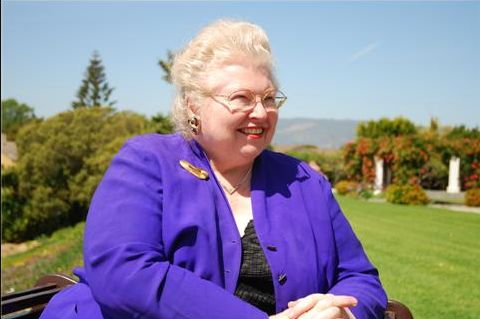When Abortion Was Illegal
It Happened in Santa Barbara

Roe v. Wade: It happened in Santa Barbara in the early 1960s, when abortion was still illegal in California.
It was long before the historic U.S. Supreme Court’s Roe v. Wade decision invalidating anti-abortion laws around the country. This week, the 39th anniversary of that January 22, 1973, ruling is being celebrated by many — and denounced by others.
Lorraine (I’ll call her) was in her twenties, unmarried, and pregnant. She was from a conservative, old-country Catholic family. To give birth would have doomed her to become a shamed outcast. Even today, in a far more relaxed society, it would have been a disaster in her family.

No one in the close-knit family would have ever spoken to her, she knew. She saw her life in ruins. She’d been a virgin until a date with the wrong man. Lorraine had no one to turn to. She dared not tell anyone in family. The father-to-be shunned her. An abortion was unthinkable, but seemed the only way out. But how? It was illegal.
(But women were still getting abortions. Covering the issue at the time, I was in the office of a Santa Barbara physician when he got an emergency call. A woman had injured herself with a coat hanger.)
Lorraine went to a young couple she knew and the husband of that couple talked to a local police detective. He suggested a Tijuana taxi driver who could be found on a certain street corner and who knew of clinics there that performed abortions.
One weekend, Lorraine, the couple, and the couple’s children, who were too young to understand the nature of the secret mission, drove across the border and searched for the taxi driver. But he wasn’t to be found. They stood there on the busy downtown corner, at a loss. But they asked around and found another cabbie, who offered to help.
The next morning the couple dropped Lorraine off at a clean-looking medical clinic and returned across the border to find a bank so they could extract money from their slender savings account to pay the clinic bill.
Getting money from an out-of-town bank in those pre-ATM times was a bit of a struggle. Then back to the clinic. How was Lorraine? They braced for bad news. There they were, in a foreign country, dealing with a clinic they knew nothing about and a doctor whose training and experience they also knew nothing about.
All they could do was trust.
Lorraine was fine. The surgery went well, but she needed to stay still for the rest of the day. The next day, they all drove back to Santa Barbara. Today, Lorraine is happily married, with children and grandchildren. We talk occasionally by phone, but never about that weekend in Tijuana.
Marie: Abortion was legal in California, Governor Reagan having okayed it in 1967 (he came out against abortion later while president), and Marie (not her real name) was pregnant due to a few drinks and a one-time date.
Her stern father, from another old-world family, would have disowned her and possibly beaten the hell out of her. The man who got her pregnant, well-known in the community, couldn’t marry her for numerous reasons. She was young and had no means to raise a child.
Her Catholic mother, without ever mentioning it to her husband, arranged for an abortion at Santa Barbara Cottage Hospital. Marie went on to college and a successful career and marriage.
She Won Roe v. Wade: A few years ago, I talked with Sarah Weddington, who was just 26 when she faced nine male Supreme Court justices to argue the case that finally legalized abortion throughout the nation. “Scared? Of course. If you’re not scared, you’re not sensible.”
Today, the landmark case remains under fire, seemingly a vote or two away from being overturned by the court. If anti-choice Senator John McCain had been elected president instead of Barack Obama, the two court appointments so far would likely have been anti-choice, and favorable to overturning the decision.
When I interviewed Weddington on Betty Stephens’s sunny Hope Ranch patio, she told of being a Texas minister’s daughter, newly elected to the Texas Legislature, when the New York Times called with news of the court’s ruling.
The world has changed. “At the University of Texas [in the mid 1960s], the policy was that no woman could be given birth control unless it was within six weeks of a wedding date,” she recalled.
Roe v. Wade, however, remains embattled.



